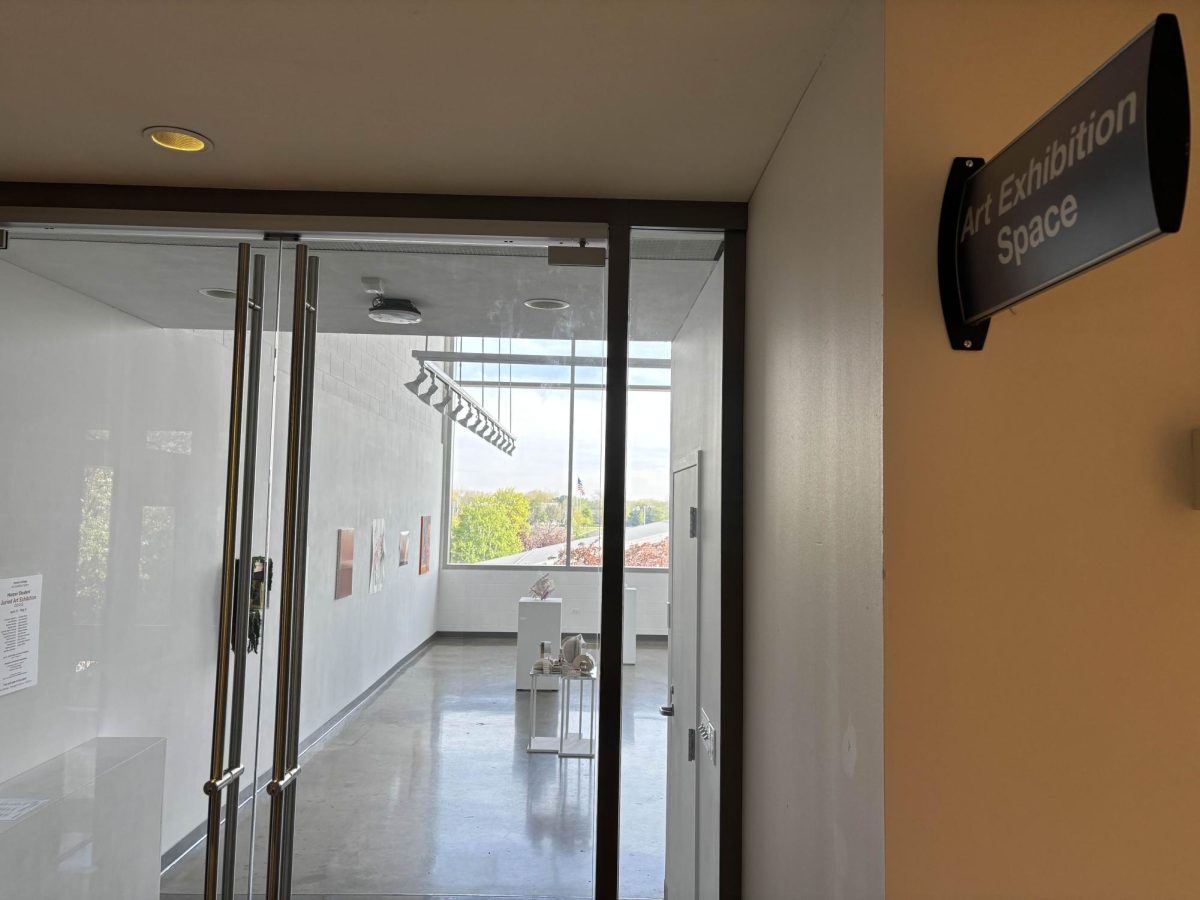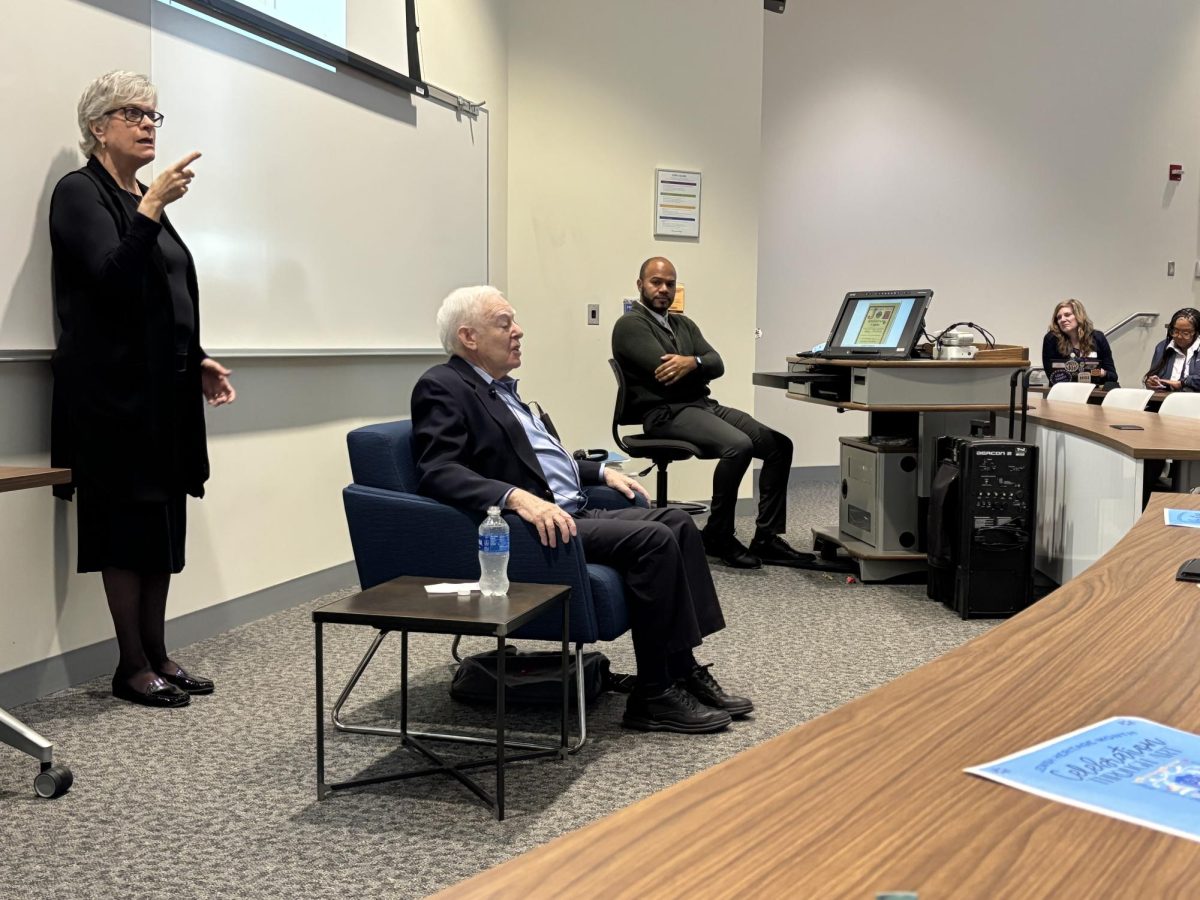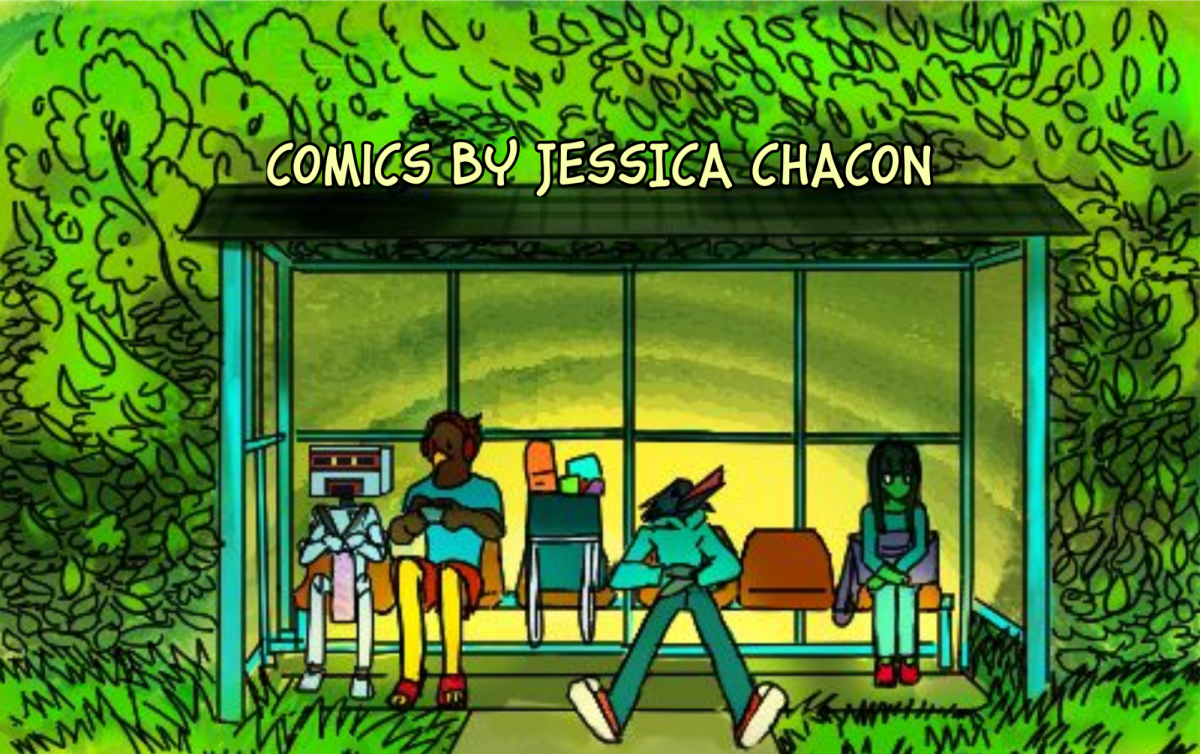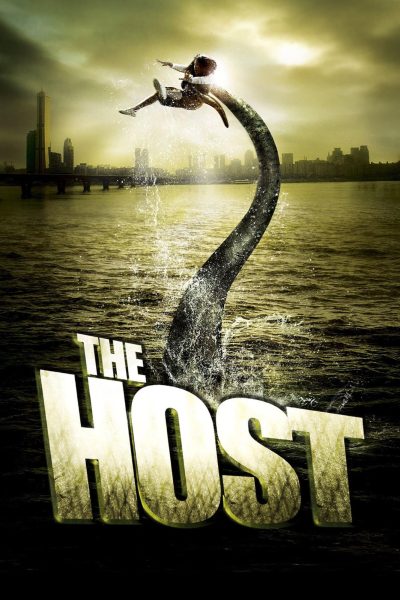
At the second of three screenings for the Harper Film Series horror film showcase, the Harper Communication Arts Department presented The Host by Academy Award winning director Bong Joon-Ho (Parasite, Memories of Murder, Okja). For his introduction and post-film discussion, professor Steven Titus highlighted topics such as social satire, genre and the delicate tonal balancing act that characterizes Bong’s films.
Here’s our review of the film:
When it comes to any form of storytelling art, content, media – whatever you want to call “Things We Enjoy in Our Free Time” – genre is something people seem to strongly identify with. Calling yourself a “sci-fi diehard” is an easy way to project the fact that you‘re drawn to things with spaceships, cyborgs and techno-babble.
If I had to pigeonhole myself as a fan of any one specific thing, I’d give the begrudging and more-than-a-little insincere answer of “horror guy.” I’m a sucker for a good rubber monster puppet, I guess. But the reason I can’t answer that confidently isn’t out of a lack of respect for the genre or any “I-am-above-genre-fiction” bullshit like that: it’s because, out of the genres typically considered to be genre fiction, I feel like horror is the biggest non-answer next to comedy.
Action, science fiction, romance, western, mystery — these all describe the content. They give you an idea of what the set-dressing is going to look like. But horror and comedy are more nebulous concepts: they are descriptors of how you’re going to react, how you’re going to feel when it’s all said and done and the curtains fall.
Of course, there are tropes and stock characters associated with horror and comedy, but anything can be horror if you shoot it right, and anything can become funny in the right context with the right actor or the right script. They can even end up that way by accident. But you never hear about unintentional action movies — at least, not in the same way you might hear about a “so-bad-it’s-funny” space opera, or an animated film stuck firmly in the uncanny valley.
Point is, if you wanted to be a total smartass, if you were willing to split every hair and stretch definitions to their very limit, you could say any movie doing its job really really right (or really really wrong) is both a horror and a comedy — a crosstown trek across the emotional spectrum.
The Host is a 2006 Korean horror-comedy film from director Bong Joon-ho.
I mean that in a good way.
It’s the story of a working class family brought together by the apparent death of Hyun-seo, the youngest member of the family and child of the loveable loser and serial naptaker Gang-du. And by “apparent death,” I mean that Gang-du was a ground zero witness for the attack of a vicious river-dwelling amphibian monster, which swallowed poor Hyun-seo whole in a single gulp.
His heart soaking in guilt, things only get worse for Gang-du when all the witnesses of the attack are forced into quarantine by the Korean government, due to growing concerns that anyone exposed to the river-creature is now the host of a deadly virus. But, when Gang-du gets a phone call from a still alive Hyun-seo, who is now trapped in the sewers that serve as the creature’s lair, he convinces his family to help him escape from custody and save her.
On paper, I’d say that The Host feels like more of a throwback to classic kaiju movies than what you’d typically expect to see from a modern horror picture. The first rampage of the river-creature is shot in broad daylight, its monstrous visage in full view as it gnashes, stomps and tailwhips at swathes of the crowd. None of it is particularly scary — at least not in the “keep you up at night” sense — but the tension is undeniable, as Bong is adept at highlighting how the sheer unpredictability and chaos of how a person (much less a crowd of people) would react to such a thing.
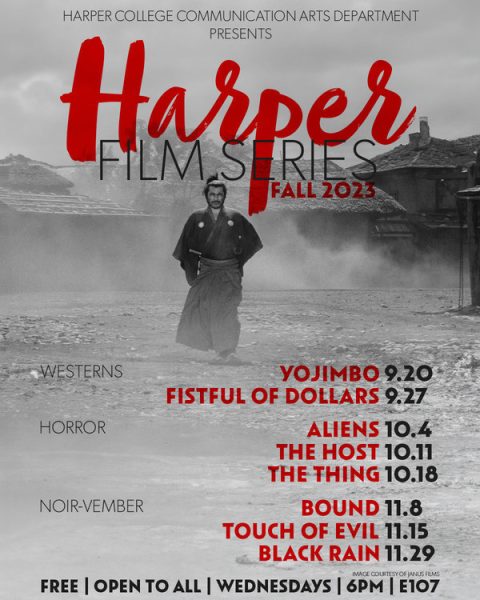 The Host also understands that this particular flavor of chaos provides as much opportunity for funny as it does for frightening. More people in this movie fall flat on their ass than they do in entire seasons of America’s Funniest Home Videos, and it even happens in scenes when they’re not being chased by a giant half-frog-half-lizard thing.
The Host also understands that this particular flavor of chaos provides as much opportunity for funny as it does for frightening. More people in this movie fall flat on their ass than they do in entire seasons of America’s Funniest Home Videos, and it even happens in scenes when they’re not being chased by a giant half-frog-half-lizard thing.
Nam-joo, Gang-du’s sister, is introduced in a scene where she just misses the mark while competing at a national archery competition, winning only bronze much to her bitter disappointment. It might be the single most obvious “Chekhov’s gun” style set-up I’ve ever seen in a movie like this – but the whole movie takes advantage of that initial bluntness. In every set piece where she’s present, the movie will take half-beat longer than it should to linger on her amidst the chaos; to dangle that carrot-on-a-stick just a wee bit lower and then rip it away from you in increasingly absurd ways, all the way until the very end.
If the teasing was any more obvious — if it were ever acknowledged verbally even once — it would pop-off with no reaction except maybe a shrug. But Bong is too mindful of where and when he spins his plates to let that happen.
There’s a good reason why a lot of the best quiet moments in both The Host and Parasite take place in makeshift disaster centers, hospital beds and waterlogged ruins. Both movies are all about building up to a fever pitch, letting it happen and then dropping you in the wake of it all, side-by-side with the characters as they breathe it in. None of these moments exist to spell out the themes or story arcs to you. Instead, as the characters take a silent inventory of what they have left, you get to take inventory of where the film has taken you so far.
If you’ve seen Parasite, a lot of The Host will feel familiar. The most obvious parallels between them being Song Kang-ho in the lead role, the family dynamics between the main characters and satirical commentary on class relations. And Parasite, language barrier and all, is a pretty funny movie that’s occasionally even scarier than The Host: it’s often described as a black comedy in reviews, whereas the decidedly more genre-y Host is almost always just sci-fi or horror. Personally, I’m not sure what I’d call either of them (and I mean that in a good way). But the two movies, while being distinct in their own right, are unmistakably kindred spirits – which is a common occurrence when you’ve got someone in the director’s chair who can see the horror and the comedy in anything.


